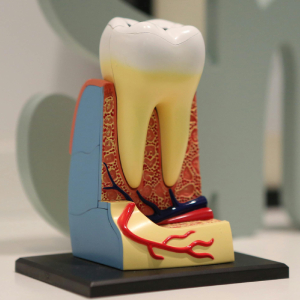If you're dealing with severe tooth pain, infection, or decay, know that tooth extraction isn't your only option. Modern dentistry offers effective solutions to save your teeth. With the expertise of an endodontist, you can preserve your natural smile through advanced procedures like root canal therapy. This ensures you can avoid the need for dental implants or living with missing teeth.
In a previous blog post, we discussed understanding the role of an endodontist in Hudson. However, in this blog, we'll delve into how an endodontist can save your teeth.
What Does an Endodontist Do?
An endodontist in Hudson is a dental specialist focusing on the health of the tooth's inner structure, including the dental pulp, which contains nerves and blood vessels. Unlike general dentists, endodontists undergo at least two additional years of specialized training. This advanced knowledge equips them to handle complex cases, especially those involving severe tooth pain or infection. If you need a root canal, an endodontist is your go-to expert.
How an Endodontist Saves Teeth
Endodontists use advanced techniques to save teeth, with root canal therapy being their most common procedure. Here's how the process works:
1. Consultation and Diagnosis
The process begins with a detailed examination at a dental office in Hudson. During this consultation, the endodontist evaluates your oral health using tools like X-rays and advanced diagnostic imaging to pinpoint the problem. This step is crucial in identifying issues such as severe decay, infection, or injury to the tooth's pulp.
Symptoms like persistent tooth pain, increased sensitivity to hot or cold, swelling around the gums, or discoloration often signal the need for immediate intervention, such as a root canal. The endodontist carefully listens to your concerns, discusses your symptoms, and explains the treatment options to ensure you fully understand the process. Early and accurate diagnosis is vital to preserving your natural teeth and avoiding complications.
2. Anesthetic and Preparation
Once the diagnosis is confirmed, the endodontist ensures your comfort by administering a local anesthetic to numb the affected area. This step eliminates pain during the procedure, helping you relax. To maintain a clean and sterile environment, a rubber dam is placed around the affected tooth. This barrier keeps the tooth dry and protects it from saliva and contaminants during the procedure.
The preparation process is meticulous, as it sets the stage for a successful root canal treatment, ensuring the tooth is accessible and isolated for the next steps.
3. Removing the Infection
The core of the treatment involves removing the damaged or infected pulp from inside the tooth. The endodontist uses precise instruments to carefully access the pulp chamber and root canals. Advanced techniques and tools allow for thorough cleaning of the interior, eliminating bacteria, infected tissue, and debris.
This step is critical in stopping the spread of infection and preserving the structural integrity of the tooth. Depending on the severity of the infection, additional cleaning solutions may be used to ensure all bacteria are eradicated, giving the tooth the best chance for recovery.
4. Filling and Sealing for Long-Term Protection
After the tooth is cleaned and disinfected, it's filled with a rubbery, biocompatible material called gutta-percha. This material seals the canals, preventing bacteria from re-entering. If the infection is severe, the endodontist might place medication within the tooth before sealing it to enhance the healing process.
A temporary filling is applied to protect the tooth until the final restoration can be completed. This step ensures the tooth remains functional and protected while you wait for the permanent solution.
5. Final Restoration for Durability and Aesthetics
The last step involves restoring the treated tooth to full functionality and appearance. Your dentist in Hudson will typically recommend placing a crown over the tooth. A crown not only strengthens the tooth but also protects it from fractures and damage caused by chewing forces.
Modern crowns are designed to match the color and shape of your natural teeth, ensuring a seamless appearance. With the restoration in place, the tooth is fully functional, allowing you to chew, bite, and smile confidently.
Signs You Need an Endodontist in Hudson
If you experience any of the following symptoms, don't delay seeking care from an endodontist in Hudson:
-
Persistent or severe tooth pain
- Sensitivity to hot or cold
- Swollen or tender gums
- Tooth discoloration
- Cracks or chips in a tooth
- Deep decay reaching the pulp
Conclusion:
Your natural teeth are invaluable, and saving them should always be a priority. Consulting an endodontist for advanced procedures, such as a root canal in Hudson, can help preserve your smile and maintain your oral health. Don't let tooth pain or infection compromise your confidence-schedule a consultation with a trusted dentist in Hudson today.
For personalized care and expert treatment, call (330) 752-6226 to book your appointment and explore options to save your teeth.











